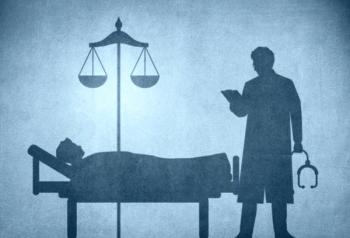
Help, My Patient Gave Me a Gift! What Do I Do?
How can you handle patient gifts as a clinician?
Many psychiatrists are forced to consider whether to accept or decline gifts when patients offer them. This can present an ethical quandary since gift-giving can be seen as a potential request for quid pro quo from a patient. Even if no such quid pro quo is expected by the patient, accepting gifts may blur professional boundaries because gift-giving is outside of the well-defined exchange of payment for services that we arrange with our patients.1 The decision to accept or reject gifts from our patients must be done thoughtfully and carefully. Here, we provide some guidelines on how to proceed when a patient presents a gift to a psychiatrist.
- Consult institutional policies: Institutions may have preexisting policies on gifts from patients. Psychiatrists who are employees should consult such policies. Self-employed clinicians may considercreating their own policy. Some institutions and practitioners refuse all patient gifts to avoid the conundrum that results from gift-giving. Others feel that such a policy precludes the therapeutic opportunity to explore the motivations behind gift-giving by patients. Even with such a policy, you should still discuss the motivations and meaning of any gifts that are offered.2
- Explore the motivations for and meaning behind the gift: Ask the patient, what made them choose to give the gift? What did they hope to convey? How did they imagine it would be received? Patients may have expectations and fantasies of the response they will receive from the psychiatrist. What would it mean to the patient if you accept the gift or if you do not? Have they given gifts to health care providers in the past? If gift-giving to providers is a common action by the patient, this might say something about the patient’s way of relating to others. On the other hand, if it is an uncommon behavior, it may indicate a unique outlook on their relationship with this psychiatrist. How did they choose the specific gift item? A gift certificate to a coffee shop conveys a different meaning than a gold watch or an item of lingerie.
- Assess the patient’s response to the discussion itself:This can be an opportunity to educate the patient on how a psychotherapeutic relationship works and the meaning our actions can have. Ask, “What did you think about me asking you about the gift?” “What are your thoughts on discussing gift-giving?”
- Consider your own countertransference around the offer of a gift. Your feelings in response to the gift may say something about the nature of the act by the patient or, conversely, may stem from your own history and personal psychology. Do you have strong feelings about receiving a gift? A psychiatrist who feels underappreciated in their own life may be more likely to feel grateful. Alternatively, a needy patient may elicit, through projective identification, feelings of obligation on the part of the provider. The mindful psychiatrist aims to recognize how their own emotional response may affect their reaction to the gift, such that they can make a more rational decision. In such a case, discussing the case with supervisors or peers is helpful.
It may be okay to accept gifts if:
- The gift is a sincere and nominal expression of thanks with no expectations attached.
- Firm professional boundaries are already in place and accepting the gift is not anticipated to threaten this.
- A fragile and limited patient is unable to understand the rationale behind refusing the gift. This needs to be balanced with patient-clinician boundaries as you weigh these competing factors.
- Gift-giving represents progress on the part of the patient (eg, a patient who has trouble giving or appreciating others).
Gifts should not be accepted if:
- The gift has an exorbitant value.
- Accepting the gift is anticipated to erode professional boundaries, whether through an expectation of quid pro quo or a perception by the patient that the relationship is broadened beyond that of a professional relationship.
- An earlier decision to accept a gift from a patient has eroded boundaries. If this is the case, then you may need to revisit your original policy with this patient and change it, explaining your reasoning.
Whether a gift is accepted or if it is not, education should be provided. For example, if accepting the gift, the psychiatrist might say, “In some circumstances accepting gifts from patients can threaten the professional nature of a relationship. I understand that you want to thank me and are appreciative of what you are getting out of treatment, so I think it is okay for me to accept this and I believe that our relationship can remain professional. I can help you best when we maintain a working relationship, so I will continue to be vigilant to make sure that our relationship does stay professional. I appreciate the gift, but you should know that the bigger gift that you have given me is the opportunity to help you and so I appreciate that you are benefiting from our work together.” Alternatively, if declining the gift, a psychiatrist might say: “I understand that you want to thank me and are appreciative of what you are getting out of treatment. However, it is important that our relationship remains professional, and I feel that accepting this gift, which is beyond our agreed upon fee, would deviate from our professional relationship and therefore could impair my ability to remain helpful to you.” Of course, the specifics of the relationship and the gift-giving act could mandate an alternative response. For example, an insulting gift or a gift of a sexual nature would require boundary setting and feedback by the psychiatrist around the message and intent unique to the specific gift.
Follow up with the patient later regardless of gift acceptance or refusal. Inquire about their thoughts and feelings in response to the interactions you had with them about the gift. Keep these events in mind in the trajectory of treatment as a potential variable that could have affected the therapeutic relationship.
Dr Opler is a clinical associate professor of psychiatry at Rutgers New Jersey Medical School in Newark, New Jersey. Mr Zhang is a 4th year medical student at Rutgers New Jersey Medical School in Newark, New Jersey.
Disclosures: The authors report no financial relationship with any company whose products are mentioned in this article or with manufacturers of competing products.
References
1. Schofield W. Psychotherapy: The Purchase of Friendship. Transaction Publishers; 1986.
2. Knox S.
Newsletter
Receive trusted psychiatric news, expert analysis, and clinical insights — subscribe today to support your practice and your patients.







